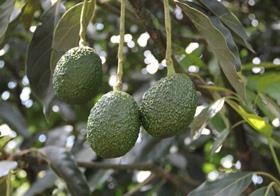
Following 2018’s extremely large avocado crop, Kenyan avocado exporter Kakuzi is anticipating yields to return to normal on its 700ha of production.
This year has not seen a repeat of the intense rainfall of last season, when nearly double the average fell during the critical fruit development period. According to Kakuzi, very dry conditions across Kenya will be a limiting factor for much of the country’s avocado production this year.
“As Kakuzi is able to irrigate we will be less impacted by this dry period,” the company said. “Over many years, Kakuzi has invested in water sustainability by constructing numerous dams to capture rainwater which would otherwise simply flow off the property. By capturing this water during the rains we are able to use it on our orchards during the dry periods, thereby minimising the need to use water from the rivers.”
The dams at Kakuzi have a storage capacity of 12.7m cubic meters of water, sufficient for all the company’s irrigation demands. “Sustainable water use and management of these resources forms a key part of what Kakuzi does,” the company explained. “These dams not only provide water for our crops but also water for domestic use for our 2,500 employees.”
The riparian areas on the Kakuzi estate are well maintained, according to the firm, providing an excellent environment for mammals, birds, snakes, frogs and insects. The Ornithological Department of the Museums of Kenya recently conducted a survey on the farm, the company said, and identified 124 bird species in just one morning.
“Maintaining a healthy environment is key to our long-term sustainability,” Kakuzi said, “and this is reflected in how we farm. Our healthy population of honeybees, which assist in pollination, is testimony to our integrated pest management approach where we seek to use methods which have no impact on beneficial insects.”
Kakuzi also supports communities of smallholder farmers. “Our active extension service helps these growers in the implementation of good agricultural practices when growing the fruit, in fertility management and its impact on fruit quality, and in the timing of the harvests,” Kakuzi stated. “Kakuzi recognises the importance of quality and upholding standards. A high priority is placed on ensuring our fruit is mature at the time of harvesting and that the coldchain is well maintained from the field, through packing, cooling and container despatch, until it reaches our agents in Europe.”



